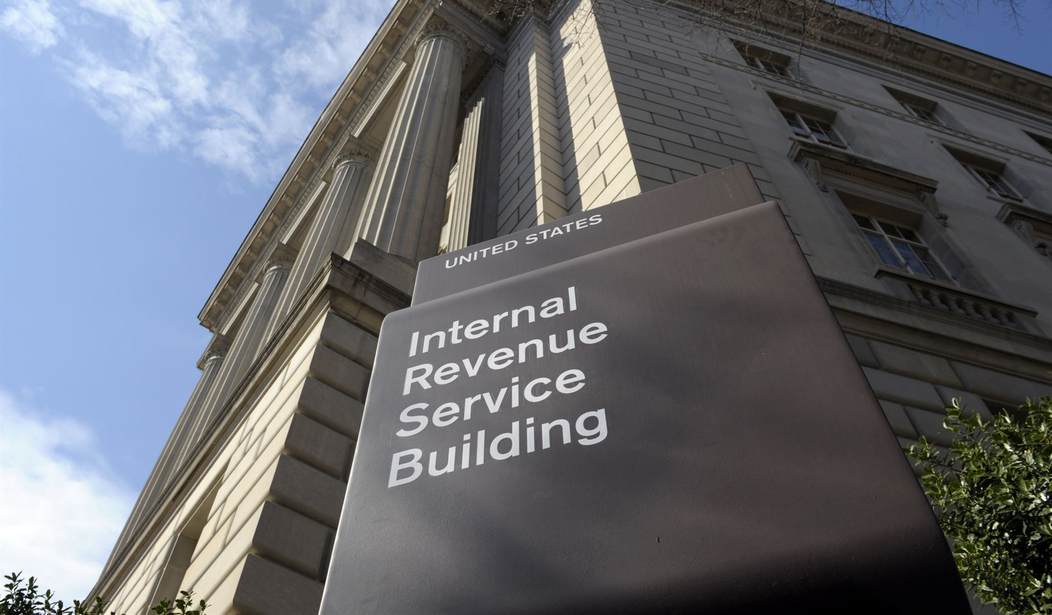Here’s another one of those important stories that is flying under the radar. The IRS has proposed a set of regulations that would potentially make it easier for its agents to get more of your hard-earned cash. If they are approved, agents will have even more power to levy fines and penalties against those who supposedly “owe” the agency money.
The IRS has proposed regulations that would weaken safeguards against imposing excessive penalties on taxpayers. Under the new regulations, IRS agents could impose penalties on taxpayers without prior approval from their supervisors, potentially leading to unfair and unreasonable penalties.
These proposed changes reflect a focus on enforcement over taxpayer rights and protections, resulting in an increasingly antagonistic and aggressive attitude from the IRS:
The IRS’s proposed regulations broadly interpret section 6751 so that every advantage is given to the IRS and little is left for taxpayers. Instead of following the statutory rule of “no supervisory signatory, no penalties,” the IRS is now proposing no supervisory signatory, maybe no penalties.
To give just one example of how these proposed regulations favor the IRS, the IRS proposes a new definition of “immediate supervisor” as “any person who, as part of their job, directly approves a penalty of another.” Common sense says a supervisor is the individual who oversees the employee and has the power to hire or fire them. The IRS suggests anyone who approves a penalty can be a supervisor. That’s outrageous. The IRS’s logic in the proposed regulation is circular. Instead of following the statute which requires the immediate supervisor to personally approve the initial determination of a penalty, the IRS is now saying anybody can propose any penalty at any time.
The draft regulation also proposes that some taxpayers will get the protection of a supervisory signature, while others won’t. Instead of every initial determination of a penalty requiring a supervisor’s approval, the IRS envisions supervisory approval only being required if the taxpayers who have an immediate right to petition the Tax Court for review. This means taxpayers must determine if they have jurisdiction to appeal to the Tax Court, negotiate the penalty with the IRS, and when they receive their final penalty notice, only then must the IRS supervisor approve.
The National Taxpayer’s Union (NTU), a taxpayer advocacy organization, submitted public comments on the IRS’ Proposed Rule for Supervisory Approval of Penalties. The NTU expressed concerns about the proposed regulation, stating that it narrows the scope of supervisory approval required for penalties and introduces ambiguity.
The organization argued that the regulation should adhere to the statutory purpose of protecting taxpayers and recommend clearer definitions of terms like “supervisor.” The NTU also suggests implementing a statement of signing to ensure penalties are approved in writing and points out that pending legislation in Congress may resolve the ambiguity in the statute. They urge the IRS to consider their recommendations and defer to the legislative process.
Apparently, the IRS doesn’t think it seizes enough of our money each year, so they have to concoct other ways to get into our pockets. Yet, some make fun of us libertarians for saying “taxation is theft.”
But I digress.
Another problematic aspect of the proposal is the burden it places on taxpayers to identify and challenge erroneous penalties. Under the current system, the IRS is responsible for ensuring the accuracy of penalties before communicating them to taxpayers. However, the proposed regulations would shift this responsibility onto taxpayers, requiring them to spot mistakes and convince the IRS to rectify them.
This places an unfair burden on taxpayers, who may not possess the necessary expertise or resources to effectively challenge penalties. It also undermines the principle of fairness, as the IRS should bear the responsibility for ensuring the accuracy of penalties before they are imposed on taxpayers. Shifting this burden onto taxpayers increases the likelihood of erroneous penalties going unchallenged, resulting in unjust outcomes – which is probably the point.
The IRS’ proposal is concerning because it undermines the rights and protections that taxpayers should enjoy when interacting with the tax system. By allowing penalties to be imposed without prior supervisory approval, the proposal removes a critical safeguard against potential abuses by IRS agents. It also fails to provide clear and unambiguous definitions and procedures, which can lead to confusion and further erode taxpayer trust.
Furthermore, this proposal comes at a time when there has been an increasing emphasis on enforcement and revenue generation at all costs, overshadowing the importance of protecting taxpayer rights. Taxpayers need assurance that their rights will be upheld, and that the IRS will act fairly and responsibly in administering tax laws.
Democrats sold the increased funding of the IRS to the American public by deceptively claiming the agency needed to beef up its efforts to steal more money from the wealthy so the state can take care of the rest of us. This is yet another indicator that these politicians had their fingers crossed behind their backs when they spewed this folderol. The bottom line is that the government will always find ways to enrich itself and grow more powerful at our expense. Too bad neither Republicans nor Democrats seem interested in stopping this.













